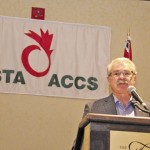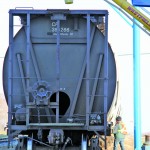Faced with meeting performance targets, Canada’s railways are now flooding the West Coast and Thunder Bay terminals with grain, the Western Grain Elevators Association says. Western grain elevator companies can handle the 11,000 cars a week the federal government has ordered the railways to move, but some of those cars need to go to the







